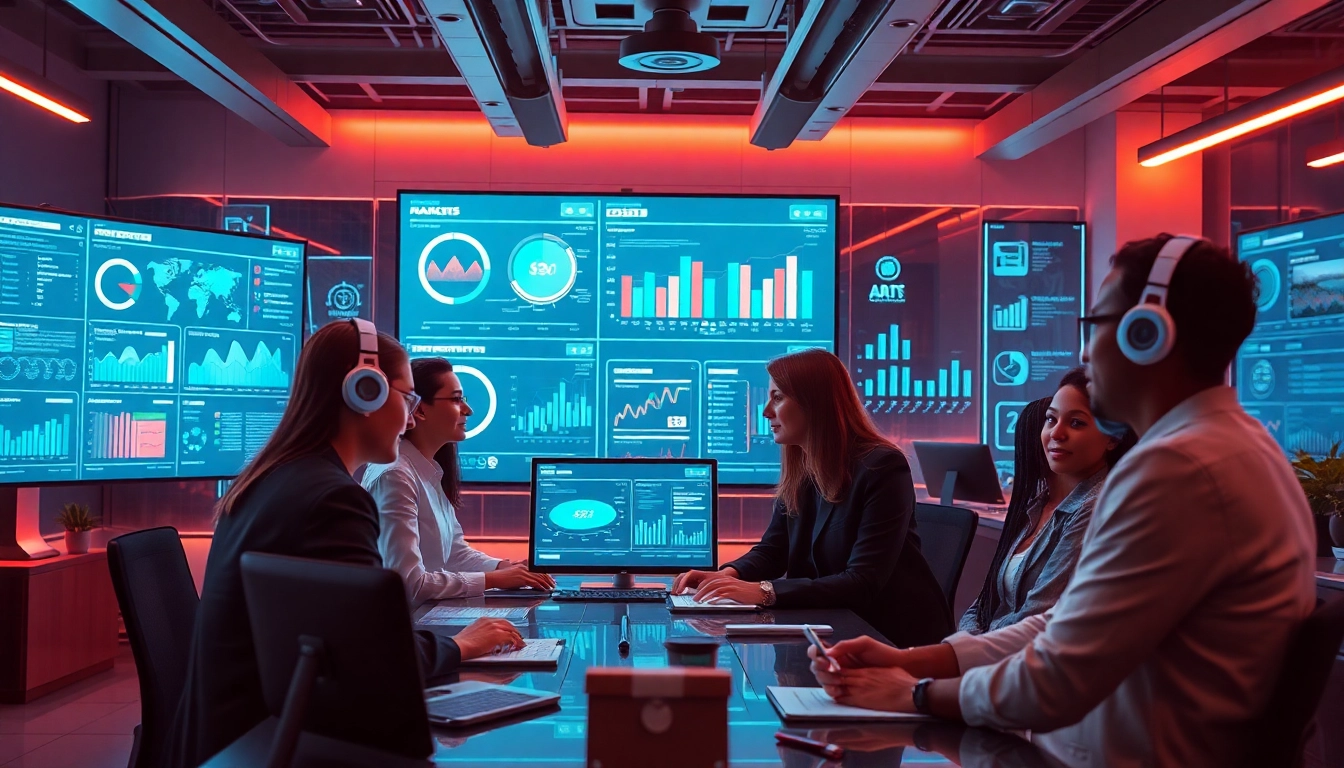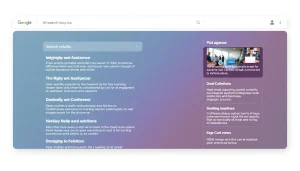Understanding AI Marketing Agents
What Are AI Marketing Agents?
AI marketing agents are innovative software tools designed to automate specific marketing tasks using the power of artificial intelligence. These tools can perform autonomously to a degree but still require human oversight to ensure desired outcomes. Essentially, they act as assistants that streamline various marketing processes such as customer segmentation, content generation, and campaign optimization. As businesses face increasing demands to be more efficient and responsive to customer needs, the role of AI marketing agents becomes crucial in alleviating the workload burden on marketing teams.
The Role of AI in Marketing Tasks
AI marketing agents are utilized in various areas of marketing, including:
- Customer Segmentation: These agents analyze customer data to identify distinct segments based on behavior, preferences, and demographics, helping marketers target their campaigns effectively.
- Content Creation: AI can generate engaging content based on predefined keywords or topics. Natural Language Processing (NLP) enhances the quality of written materials, including social media posts, blog entries, and email newsletters.
- Ad Campaign Management: Automated agents can optimize ad spend by adjusting bids in real-time based on performance metrics, ensuring that budgets are allocated efficiently.
- Performance Analytics: AI marketing agents can analyze large sets of marketing data quickly, identifying which strategies are working and suggesting improvements or new tactics.
Differences Between AI Marketing Agents and Agencies
The distinction between AI marketing agents and AI marketing agencies is significant. While AI marketing agents are software tools, AI marketing agencies consist of teams that utilize these technologies alongside human expertise. Agencies incorporate human insights with AI capabilities to deliver comprehensive marketing strategies tailored to specific client needs.
Benefits of Implementing AI Marketing Agents
Increasing Efficiency and Productivity
One of the most significant advantages of using AI marketing agents is their ability to enhance efficiency. By automating repetitive tasks, companies can free up their marketing teams to focus on more complex and strategic activities. For example, rather than manually analyzing customer data, marketers can leverage AI to gain insights in real-time, thereby accelerating the decision-making process.
Enhancing Customer Personalization
AI marketing agents excel at delivering personalized experiences to customers. They can analyze individual user behaviors and preferences, allowing marketers to tailor content and offers that resonate with specific audiences. This personalization not only improves customer satisfaction but can also lead to higher conversion rates. For instance, brands utilizing AI for personalized email marketing campaigns have reported increased engagement and sales.
Real-Time Data Analysis and Decision Making
With the vast amount of data generated across digital platforms, analyzing this information manually is increasingly impractical. AI marketing agents provide businesses with the ability to analyze data in real-time, which means decisions can be made swiftly and based on the latest information. This agility is crucial in today’s fast-paced marketing environment, where consumer preferences can change overnight.
Challenges of Using AI Marketing Agents
Data Privacy and Security Concerns
Despite the advantages, employing AI marketing agents does come with challenges, notably regarding data privacy. As these agents often rely on large datasets to function effectively, businesses must ensure compliance with laws and regulations surrounding personal data. Implementing stringent data security measures is essential to protect sensitive customer information and maintain trust.
Integration with Existing Marketing Tools
Another common challenge is integrating AI marketing agents with existing marketing tools. Businesses often use various software solutions for different marketing needs. Ensuring that an AI solution can seamlessly integrate with these systems can be a complex process, but it is vital for maximizing automation benefits.
Need for Human Oversight
Although AI marketing agents can operate with a degree of autonomy, human oversight is necessary to ensure that campaigns align with brand values and ethical standards. Misalignment can lead to misleading campaigns or miscommunication with audiences. Therefore, companies must balance automation with human insight and creativity.
Best Practices for Leveraging AI Marketing Agents
Identifying Suitable Tasks for Automation
To fully harness the power of AI marketing agents, businesses need to first identify which tasks are suitable for automation. Routine tasks such as data entry, customer segmentation, and scheduling content postings are ideal candidates. By starting small and gradually expanding the use of AI agents, organizations can manage risk while reaping the benefits of increased efficiency.
Training and Customizing Your AI Agents
Every business is unique, and so too are its marketing needs. Training AI marketing agents involves inputting specific data and parameters to ensure they deliver tailored results. This customization is crucial for achieving relevant outcomes and should be part of the deployment strategy to improve engagement and effectiveness.
Measuring Performance and ROI
Implementing AI marketing agents without assessing their performance can lead to wasted resources. Businesses should establish clear metrics for success from the start. These metrics can include lead conversion rates, ROI from marketing campaigns, engagement levels, and overall customer satisfaction scores. Measuring these metrics over time will provide insights into the agents’ effectiveness and guide adjustments as needed.
Looking Ahead: The Future of AI in Marketing
Emerging Trends in AI Marketing
The landscape for AI in marketing is ever-evolving. Emerging trends indicate a shift toward more sophisticated AI models that can conduct predictive analytics to forecast consumer behavior. Additionally, as ethical standards around AI use become more defined, there will likely be advancements in designing marketing agents that prioritize transparency and customer trust.
The Evolving Role of Human Marketers
As AI marketing agents take on more tasks, the role of human marketers will likely evolve rather than diminish. Marketers will need to focus on strategic planning, creative problem-solving, and building relationships with consumers—areas where human strengths are irreplaceable. A collaboration between human insights and AI automation is where the future of marketing lies.
Preparing Your Business for AI Adoption
To adopt AI marketing agents successfully, businesses must invest in training their staff to work alongside AI tools and understand their capabilities. This preparation includes ongoing education about emerging technologies, identifying the right tools for their marketing strategies, and fostering a culture of innovation that embraces change. By doing so, organizations can position themselves to leverage AI effectively and stay ahead of the competition.







